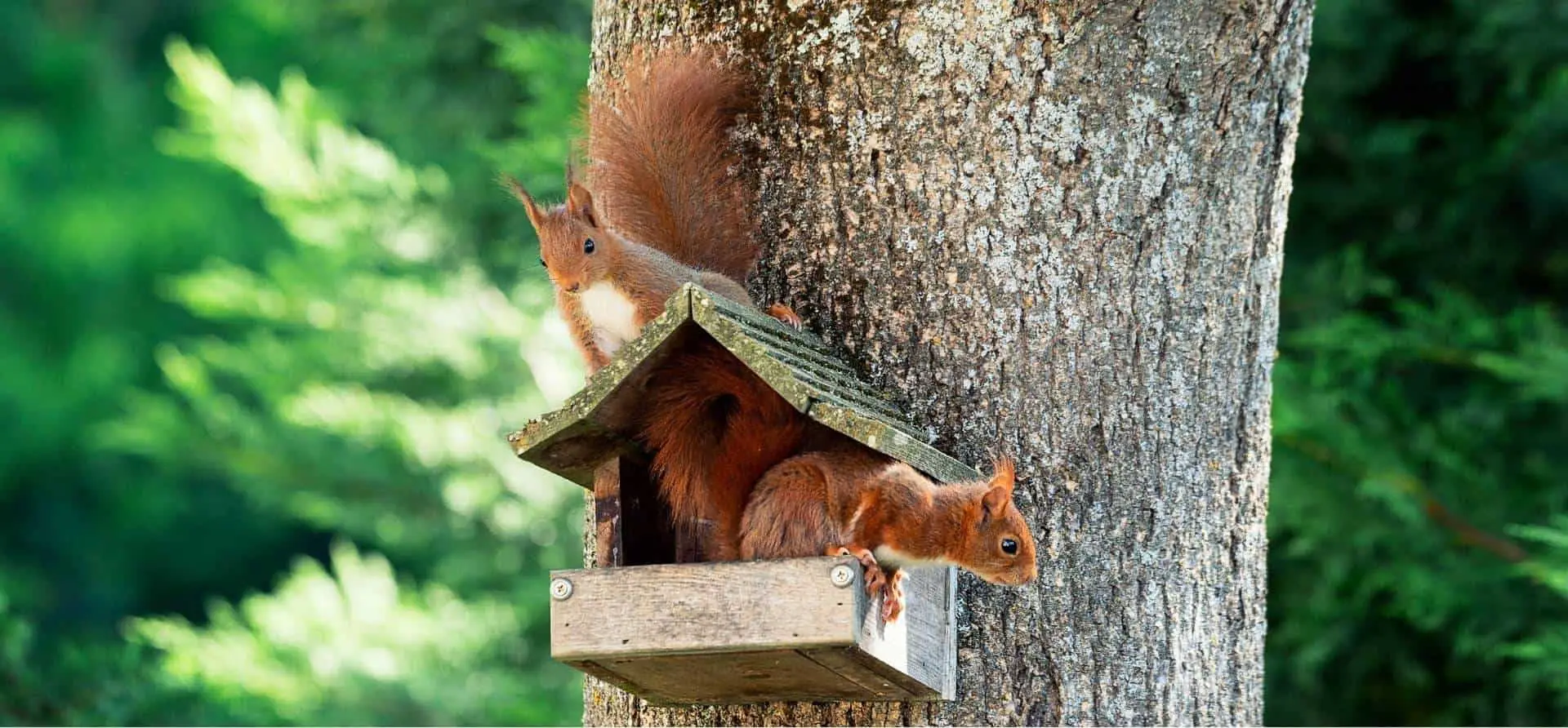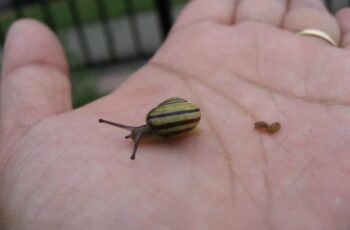When you see your chickens yawn, it’s hard not to think of being sleepy, tired, or bored. But are they really? And do they yawn for the same reason as we do? Why do chickens yawn?
The Short Answer…
Typically chickens yawn for adjusting the crop (crop drop) but can be also for swallowing stuck food in their throat or crop, suffocating from worms or disease. When a chicken’s crop is full and ready for digestion, chickens may stretch its neck while keeping mouth open and heads up to move the food to its digestive tract. That may seem like yawning that seems like chickens sleepy. It’s known as crop drop that is the main reason for chickens yawning.
How To Identify If A Chicken Is Yawning for Crop Drop, Food Stuck, Worms, or Disease?
- If a chicken is raising its head while stretching its neck and opening its mouth (like yawning) quickly, without taking time and opening its eyes immediately after yawning, the chicken is basically crop dropping.
- However, if a chicken is yawning slowly and closing or half-closing eyes after, and lastly with wings dropped, a chicken may be suffering from respiratory problems or disease.
- However, if chickens keep yawning quickly but continuously and keep yawing consistently, something might be stuck in the throat or crop.
What is Chicken’s Crop?
A chicken’s crop is a food storing place (not stomach) which is right in front of a chicken down their head. And when its ready for digestion, chicken may act like a yawn that moves the food from the crop to the stomach where it breaks down.
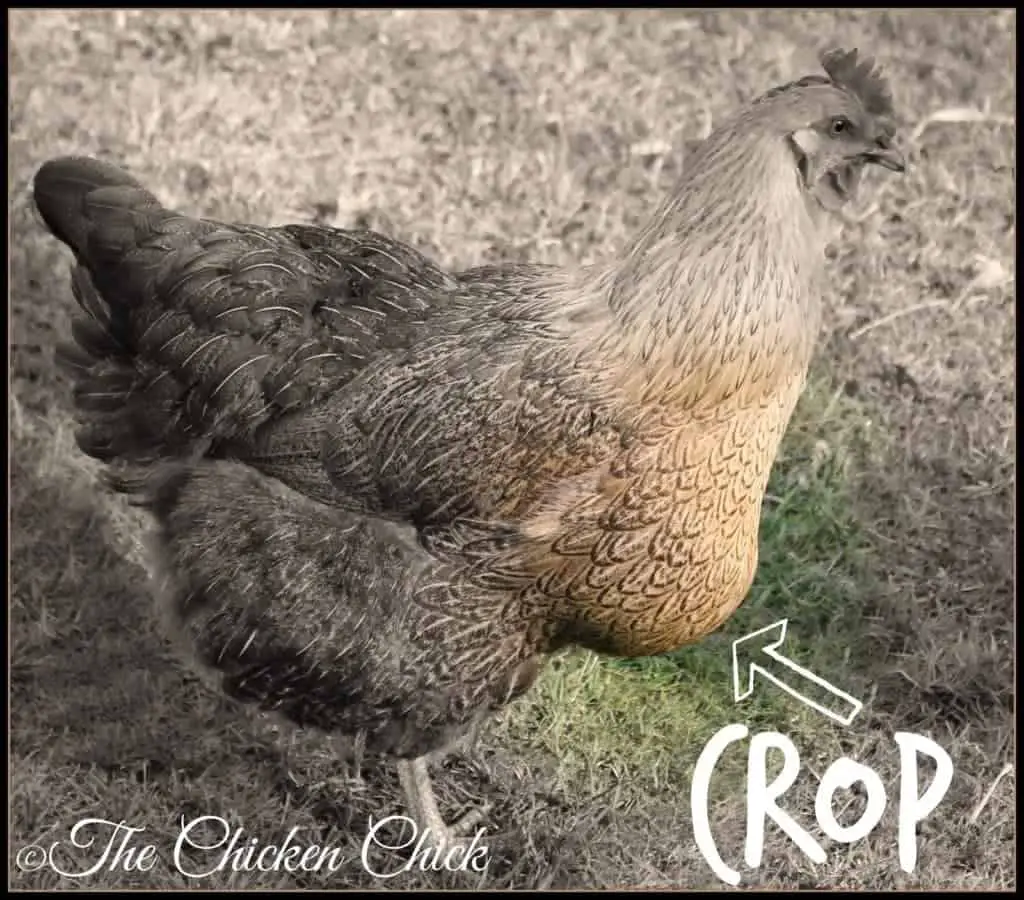
The primary function of a chicken’s crop is to store food prior to digestion. When a chicken eats, its food goes first into the crop, where it is stored until the crop is full. The food then moves into the muscular proventriculus, where it begins its journey through the rest of the chicken’s digestive system.
What To Do If The Chicken Keeps Yawning?
If your chicken keeps yawning, it can be a sign of a respiratory infection or worms or stuck something, which can quickly become fatal in chickens.
-
Take To Vet
If your chicken is yawning a lot, it may be having difficulty breathing which may open its mouth wide in an attempt to get more air. If you notice your chicken yawning frequently, it’s a good idea to take it to the vet for a check-up.
If you notice your chicken yawning frequently, check her for other signs of illness, such as lethargy, lack of appetite, or discharge from the eyes or nose. If she seems sick, take her to the vet immediately.
In the meantime, try to keep her isolated from the rest of your flock to avoid spreading the infection.
How to Prevent Chickens From Yawning & Respiratory Problems?
Chickens are prone to respiratory problems due to the fact that they have relatively long air passages compared to the size of their bodies. This makes it easy for foreign objects, such as dust, to enter their lungs and cause irritation. In addition, chickens have a high rate of respiration, which further increases the likelihood of respiratory problems.
-
Keep Chickens Coop Clean
The best way to do this is to perform a deep clean on a regular basis. This means scrubbing down all of the surfaces, removing any nest material, and making sure that the ventilation is adequate. It is important to keep the chicken coop clean and well-ventilated.
Cleaning every day or two days will do the job.
-
Serve Clean Water
To help prevent respiratory problems in chickens, it is important to provide them with clean water and fresh air. The water should be free of bacteria and other contaminants, and the air should be free from dust and other particles.
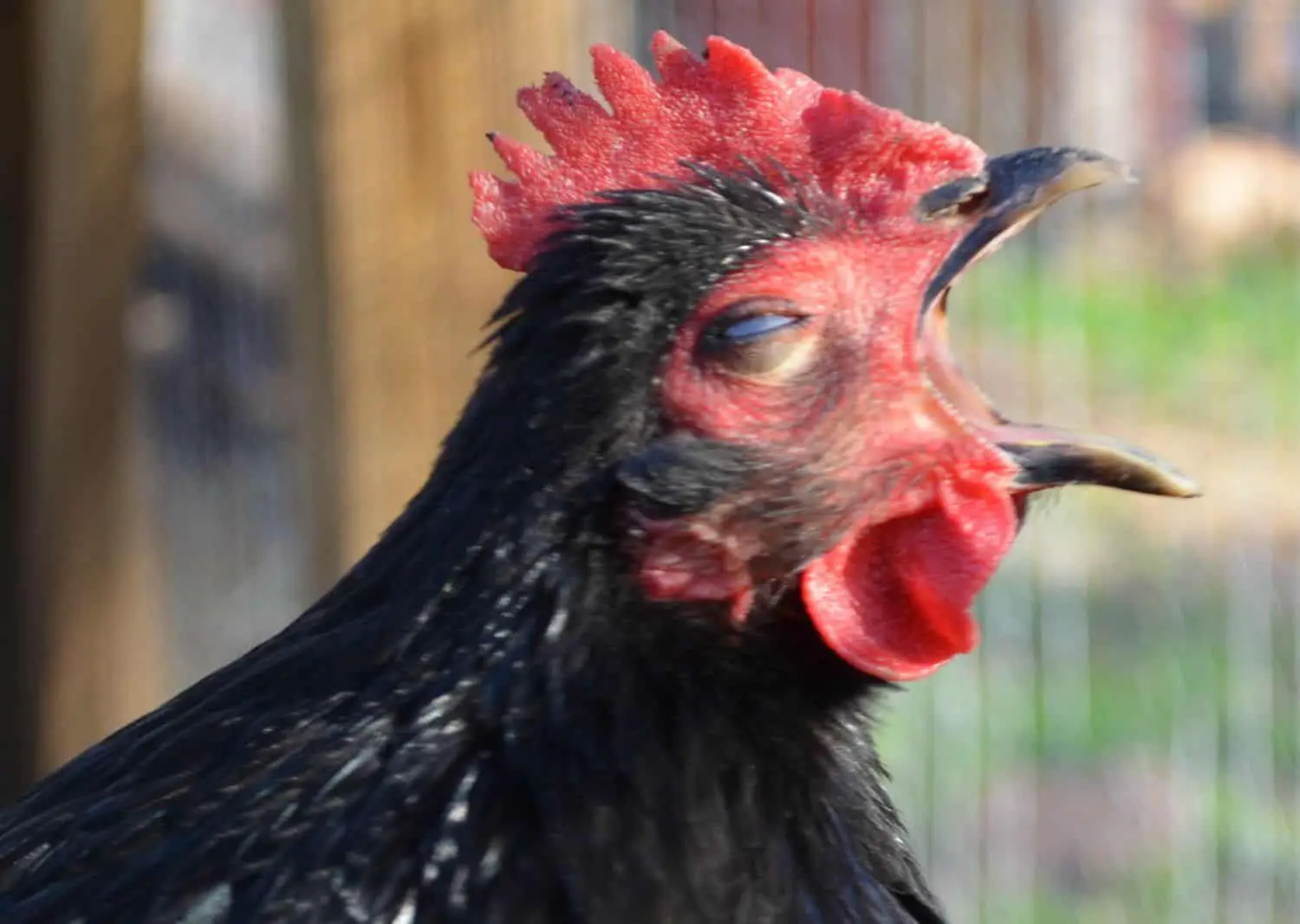
-
Provide Chicken’s Food Only
Chickens are susceptible to a number of respiratory problems, many of which can be prevented by providing them with proper food. A diet that is rich in vitamins and minerals helps to keep the immune system strong, which in turn helps to prevent respiratory infections. And more importantly, a diet which contains chicken food like cracked corn but not carcass which may stuck in their throat or corn.
Do Baby Chickens Yawn? Why?
No wonder why chickens yawn and what does it means however, in fact, baby chickens seem to yawn more often than adult chickens. But why is that?
The primary reason is because baby chickens yawn to crops drop. The crop stores food until it is ready to be digested. When a chicken yawns, the muscles in its neck contract, which forces food out of the crop and into the stomach. While it may seem odd to us, yawning is a perfectly normal function for chickens. In fact, its fine even if the baby chickens are doing more than one, even repeadatly.
This process takes a lot of energy, so it’s no wonder that baby chickens yawn so much! This is how baby chickens eat – they peck at their food, then drop it down into their crop where it’s stored until they’re ready to swallow it.
Do Chickens Yawn When They Are Sleepy?
Chickens are not susceptible to yawning when they are sleepy. Yawning is a reflex which mammals do when they are tired. Chickens, however, do not have this reflex. Instead, they will lower their heads and close their eyes when they are ready to sleep.
Chickens also do not yawn when they are sleepy but only when they are stretching like dogs and cats do. In fact, if you see a chicken yawning, it is likely that chicken is crop-dropping or worst-case scenario something is wrong with its respiratory system. If you notice your chicken yawning frequently, it is important to take it to a vet for a check-up.
How Often Do Chickens Yawn Typically?
According to a study, chickens yawn an average of five to six times per day. Although chickens do not yawn for stretching their muscles or relieving boredom, chickens typically yawn several times a day, although the frequency depends on the individual bird.
Some chickens yawn more often than others, while some may only yawn a few times a week.
Why Do Chickens Open Its Mouth?
This is a common behavior among chickens, and there are a few different reasons why they might do it.
-
Breathe or Inhalation
Yes, chickens do open their mouth to breathe. It’s as simple and as common as that. A common reason why chickens open its mouth during foraging is simply to breathe. Although they normally breathe with their nose, but they also use their mouth sometimes espically when its hot outside.
But remember it’s not often and breathing open mouth often times may indicate gapeworm or respiratory problems.
-
Regulate Their Body Temperature
First of all, chickens don’t have sweat glands, so they pant to help regulate their body temperature. When it’s hot outside, panting helps them to stay cool by evaporating the moisture on their tongue and respiratory tract.
-
Respiratory Problems
Chickens may also gaping if they are experiencing respiratory distress. This can be caused by a number of factors, including viral or bacterial infections, dust inhalation, or even something as simple as allergies.
Panting can be a sign of respiratory illness, so if your chicken is panting frequently, it’s important to take her to the vet for a checkup.
How to Spot If A Chicken Has Grapeworm?
Grapeworms attach themselves to the chicken’s intestine, where they feed on blood and tissue. While most chickens are able to fight off an infestation, some may develop severe anemia or even die if the worms are not removed. Fortunately, there are a few signs that can help you spot if a chicken has grapeworms.
-
Gaping
The most obvious sign of a grapeworm infection is gaping, as the worms block the chicken’s throat and cause it to gasp for breath.
-
Coughing
Other common symptoms include coughing, open-mouthed breathing or panting, and wheezing or hissing. In severe cases, chickens may even die from asphyxiation.
-
Open Mouth Breathing
Fortunately, there are several ways to spot a gapeworm infection before it becomes deadly. For example, if you notice your chicken gaping or gasping for breath, it’s important to check its mouth and throat for the presence of worms. Additionally, keep an eye out for other respiratory symptoms, such as coughing and wheezing. If you suspect that your chicken has a grapeworm infection, contact a veterinarian for treatment immediately.
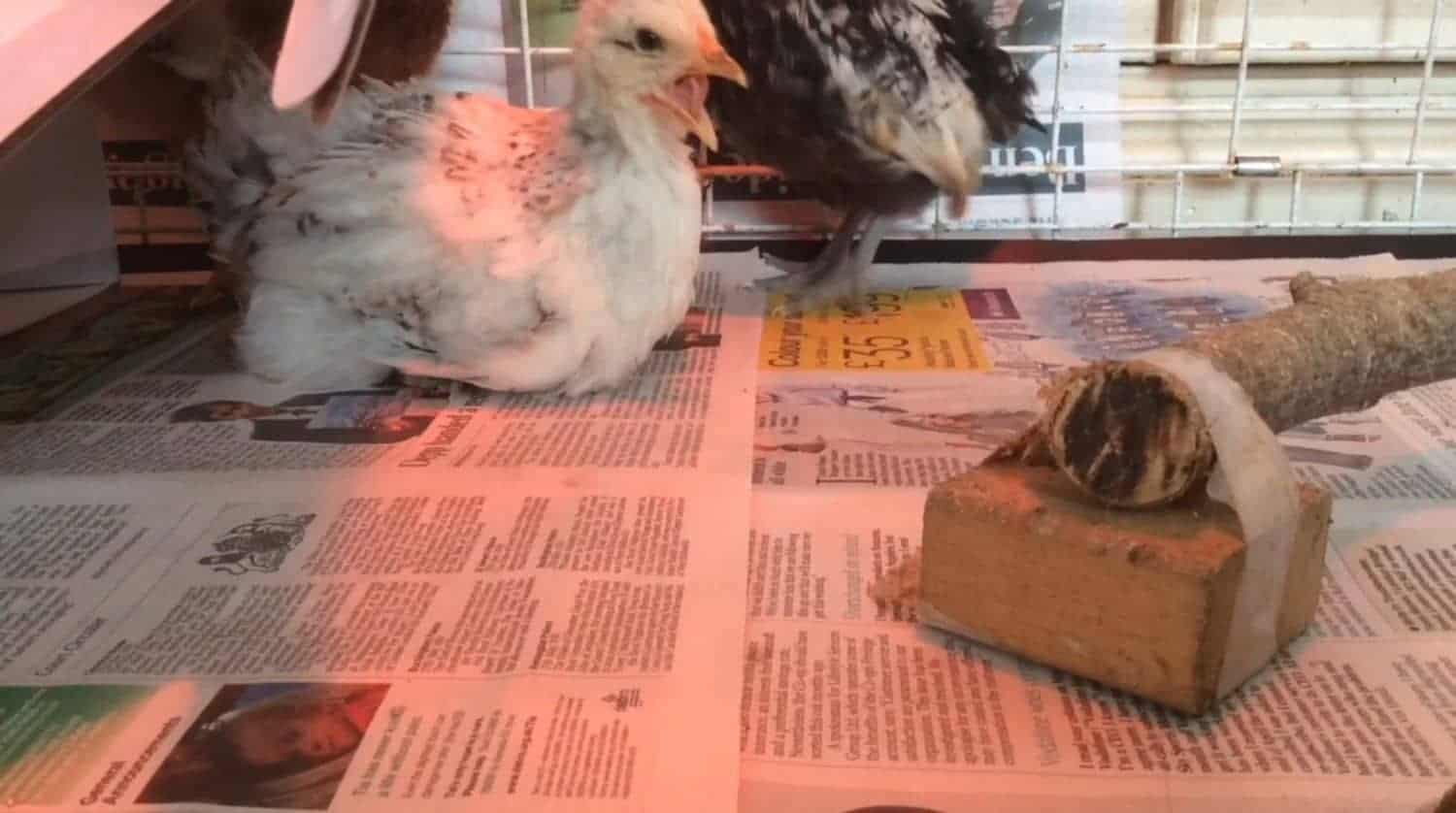
How to Treat A Chicken with Grapeworm?
Luckily, there are a few simple steps that can be taken to treat a chicken with gapeworm.
-
Isolate
First, the affected chicken should be isolated from the rest of the flock to prevent the spread of the parasite.
-
Give Flubenol or Aviverm Tablets
Finally, the best way to treat grapeworm is with Flubenol or Aviverm tablets. These drugs will kill the worms and help to prevent them from coming back. Chickens should be treated every three to six months to keep them healthy and free of grape worms.
-
Clean The Chicken Coop
The chicken coop should be cleaned and disinfected to prevent reinfection. By taking these steps, you can help keep your chickens healthy and free from disease.

